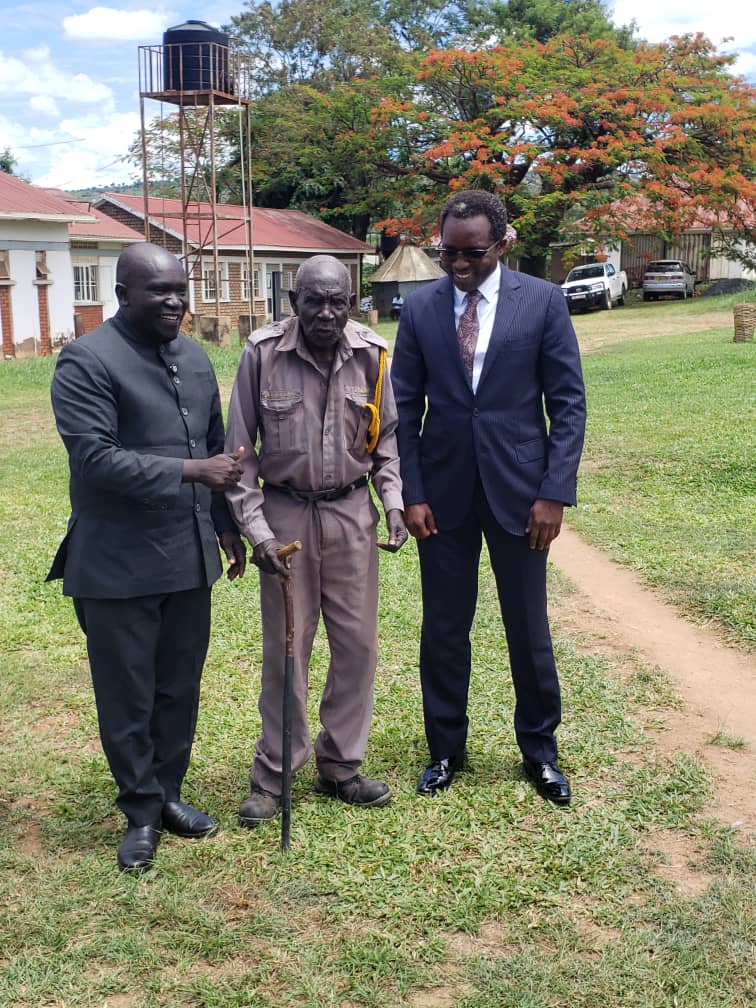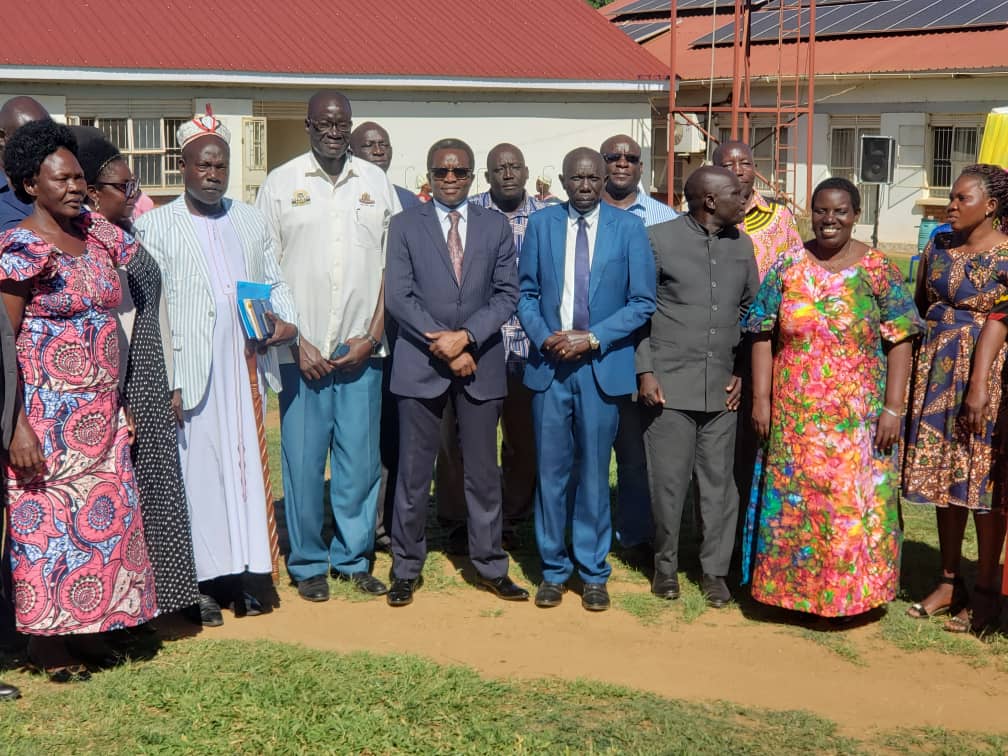
By Joseph Kiggundu
Pakwach, West Nile — Tensions over illegal pastoralist settlements dominated discussions during a high-level engagement meeting chaired by Hon. Dr. Kenneth Omona, Minister of State for Northern Uganda Rehabilitation, at a joint session with district and security leaders in West Nile. The minister’s visit comes amid growing local frustration over the long-standing Baralo issue, with calls for urgent implementation of Presidential Executive Order No. 3, which mandates the eviction of illegal cattle keepers.
The meeting brought together key stakeholders from Nebbi, Madi Okollo, and Pakwach districts, including Resident District Commissioners (RDCs), District Chairpersons, MPs, opinion leaders, civil servants, and security teams.

In his opening remarks, Hon. Drabe Ismail Adirisi, District Chairperson for Madi Okollo, expressed concern over escalating land conflicts involving the Baralo — nomadic pastoralists originally from other regions — whose presence dates back to 2000. “Their numbers surged around 2015-2016, and by 2020 tensions with the indigenous Madi community intensified,” he said.
The RDC for Nebbi, Mr. Masereka Joshua, offered a blunt assessment: “The locals, including their leadership, have been compromised. Land sales are facilitated by local brokers, some of whom are local council officials. The illegal settlers have taken advantage of a dormant local population and widespread corruption.”
He also pointed out systemic challenges, including lax enforcement at animal checkpoints, low agricultural productivity, and a growing dependency culture. He called for renewed support to cassava production, value addition, and access to markets. “Land should be leased in exchange for livestock, not money,” he proposed.
In his address, Hon. Dr. Omona praised local leaders for maintaining peace and highlighted the region’s immense agricultural and tourism potential. “This land is fertile, the pastures are good, and the people are resilient,” he said, before calling for diversification into cocoa, avocado, coffee, and poultry.
On the issue of the Baralo, he was unequivocal. “The Presidential Executive Order No. 3 remains in force. The illegal cattle keepers will be evicted. We cannot allow lawlessness to derail development,” he said. He cited environmental degradation, rising insecurity, and the erosion of traditional livelihoods as key reasons for enforcement.
The Minister directed production officers and extension workers to submit detailed farmer outreach and training reports within two months. He also stressed the importance of integrating livestock into crop production to restore soil fertility and revive the region’s former livestock dominance. “In 1985-1986, West Nile had the largest animal population in Uganda. That legacy can be reclaimed,” he said.
Outspoken leaders, including CAO Dorothy Ajwang of Nebbi and Mr. Abak Robert, outgoing RDC of Pakwach, pressed for concrete action. “We’ve talked enough. This must be the last engagement on this issue. Implementation must begin,” said Mr. Abak, who is transitioning into active politics.
Mr. Abak revealed that 14 compliant and five non-compliant Baralo families have been identified. However, ongoing challenges include illegal grazing at night by armed herders, foot-and-mouth disease, and land disputes. “The people are growing impatient. This will affect the coming elections if not resolved,” he warned.

District leaders also decried the rise of illegal charcoal trade, aided by local leaders and corrupt forestry officers. “We need clear guidelines on how confiscated charcoal is handled,” added the Woman MP, Hon. Ayur Jane P.
The LC5 Chairperson, Hon. Robert Steen Omito, highlighted the poor state of the Nebbi-Goli road as a barrier to development. His concerns were echoed by area MPs Hon. Achibu Agnes and Hon. Isaac Etuka Joakino, who stressed the need for a technical institute in the region and better access to education and public services.
The Minister emphasized the government’s focus on ATM — Agriculture, Tourism, and Mineral development — as strategic pillars for regional transformation. “We aim for a 50 billion USD economy by 2040. West Nile must be part of that journey,” he said.
The Minister closed by praising the RDCs, CAOs, and other officials for their service and reaffirmed his commitment to ensuring the Baralo issue is resolved decisively. “We will not fail the people of West Nile,” he said